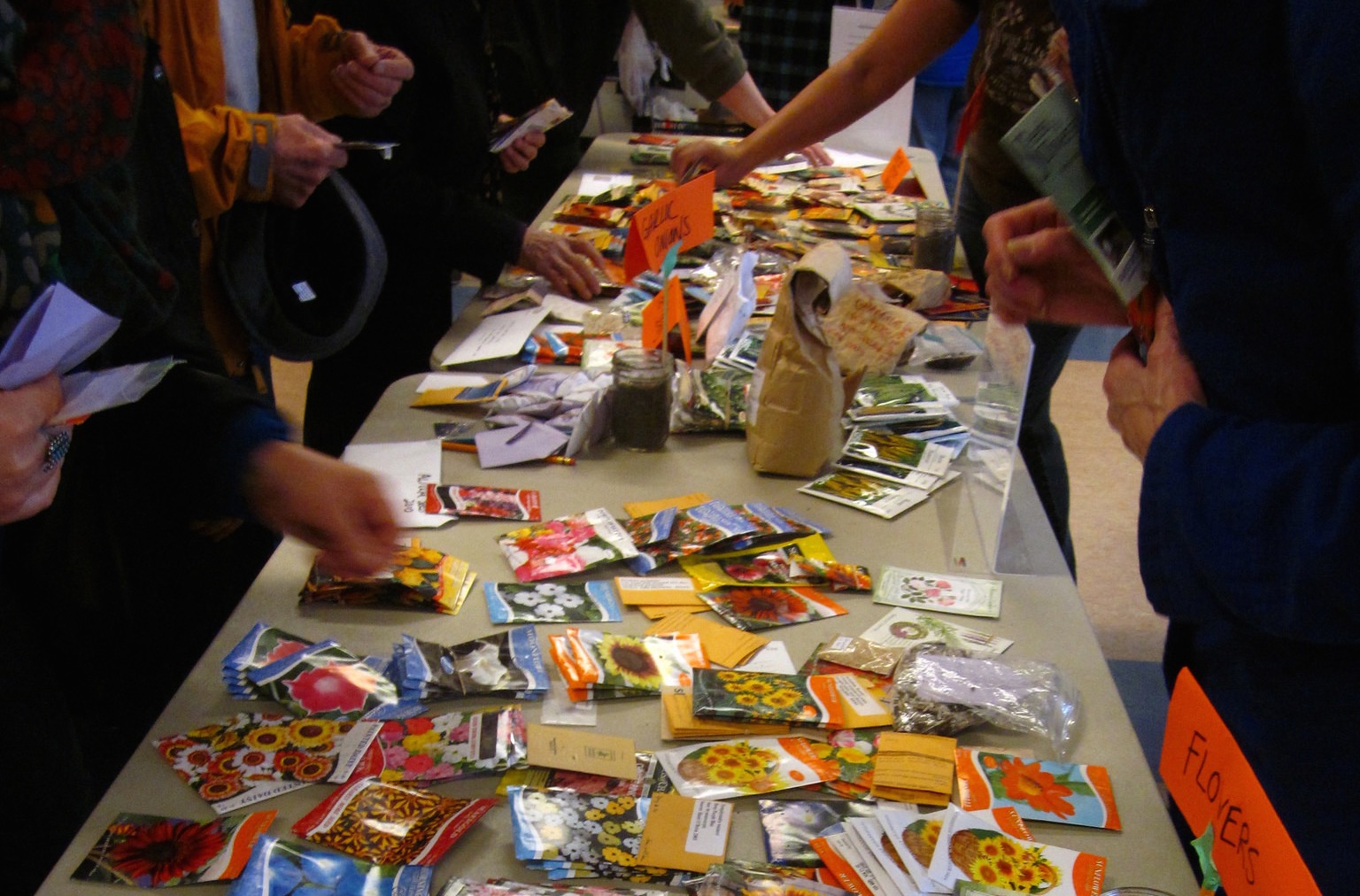The state just became the fourth to pass a law making it legal to swap seeds and collect them in non-commercial libraries.

The state just became the fourth to pass a law making it legal to swap seeds and collect them in non-commercial libraries.
October 6, 2016

Free seed libraries, swaps, and exchanges increase access to local food and can play a large role in both expanding and preserving biodiversity. Yet for almost 80 years, these non-commercial operations have been running afoul of the law.
That’s because the U.S. Department of Agriculture’s (USDA) Federal Seed Act mandates that any activity involving non-commercial distribution of seed be labeled, permitted, and tested according to industrial regulations that would be both costly and burdensome to the over 460 estimated seed libraries operating in 46 states.
Now the tide may be starting to turn.
California—home to over 60 seed libraries and hundreds of swaps, according to Rebecca Newburn, co-founder and coordinator of the Richmond Grows Seed Lending Library—recently became the fourth state in two years to pass a law that exempts non-commercial seed activities from regulatory requirements.
“We wanted to create the legal framework for an alternative system that is not reliant on large companies to provide open-pollinated seed varieties,” said Neil Thapar, the food and farm attorney at the Sustainable Economies Law Center (SELC). “Seed sharing has a direct connection to building local economic resilience.”
SELC partnered with a variety of groups throughout California—including local seed libraries, nonprofit organizations, and a class of fourth graders in Marin County—to advocate for AB 1810, the legislation co-sponsored by Assemblymembers Marc Levine and Devon Mathis.
While none of the seed libraries and seed exchanges in California had reported being targeted by the government, Thapar said, advocates nationwide became concerned when state officials shut down a Pennsylvania seed sharing library in 2014, citing the violation of a law mirroring the Federal Seed Act. The next year, Nebraska and Minnesota libraries faced similar crackdowns (seed control law is mostly uniform across all 50 states).
But in the last two years, Nebraska, Illinois, and Minnesota have all passed laws protecting non-commercial seed activity from regulatory requirements. And the effort appears to be spreading. Thapar says he has been contacted by residents in Florida, Ohio, and New York.
SELC is taking action to get laws changed in all 50 states. Almost all state seed control officials use “model legislation” (officially dubbed the Recommended Uniform State Seed Law or RUSSL) developed by the Association of American Seed Control Officials as the template for their own laws. SELC has been working with the Association to add a section to RUSSL specifying that noncommercial seed sharing activities be exempt from industrial labeling, permitting, and testing requirements.
“If we can get the RUSSL to change that, then it would facilitate more states to incorporate that language over time,” Thapar said.
Sara McCamant, the co-founder of Community Seed Exchange, a volunteer-run seed library and garden in Sonoma County, California, said she was never too concerned that state officials would attempt a crackdown.
“There are so many libraries here,” she said. “But there was concern that it could be a problem in the future. This legislation was a preventive action, as it’s becoming an issue with the seed controllers in every state.”
But McCamant emphasizes that the new protections for local seed sharing, saving, and swapping do have immediate significance for biodiversity in California
“Just one seed library can take [plant] varieties that have almost disappeared and are impossible to find and all of a sudden you can find it everywhere,” she says. By saving the seeds of the plants that appear to be the healthiest, gardeners can breed for strength of future seed generations.
Community Seed Exchange’s library includes 180 varieties of fruits, vegetables, and grains such as quinoa and amaranth. The group also maintains a garden and teaches classes on how to save seed.
But the most important impact of these programs, McCamant says, is that they build resilience in the local food system by taking power away from the handful of corporations that control the majority of the global seed industry.
“If we don’t have access to the first link of a food chain, we have no control over what to grow and what food is available to us,” she said. “The scale can be small, but the impacts can be so large.”

October 9, 2024
In this week’s Field Report, MAHA lands on Capitol Hill, climate-friendly farm funding, and more.
October 2, 2024

October 2, 2024

October 1, 2024

September 30, 2024

September 25, 2024

September 25, 2024

The seed law was created to protect farmers and gardeners from fraud, which used to be rampant in the seed industry. As a buyer of seed, you can't tell by looking at it whether it is the right variety, whether is is full of disease, or even whether it is alive.
Seedborne diseases and viruses are particularly problematic because they can wipe out entire farms and don't go away.
Seed testing is still critical for any seed that you rely on for your livelihood. Even if you get it by trading.
I've read the Federal Seed Act and see references to interstate activities - but don't see any references to seed libraries specifically which make them illegal. I may have over looked that particular passage and would appreciate it if you could point me to where that is. I also find lots of wording about interstate - but nothing about intrastate activities. Again, am I missing something here? A reference would be appreciated. Thank you.
Ron plumb
Greenview Gardens